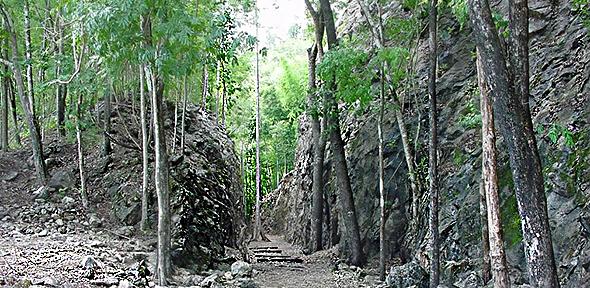
To commemorate the Cambridgeshire soldiers who died in the failed defence of Singapore and as Japanese prisoners of war, during World War II, and those who were freed in September 1945 – exactly 70 years ago – Open Cambridge is hosting a special talk on Friday 11 September.
Leader of the Cambridge City Council, Councillor Lewis Herbert, will present a historical account of the experiences of Cambridgeshire soldiers sent to Singapore in 1942 and the atrocities they suffered, as prison labourers for the Imperial Japanese Army, building the Thailand-Burma ‘Death Railway.’
In total, 784 members of the Cambridgeshire Regiment died in the Far East between January 1942 and August 1945, alongside hundreds of other soldiers from Cambridgeshire and East Anglia who served in the Suffolk Regiment and other parts of the British Armed Forces. Many died in horrific, sordid circumstances, during forced slave labour on the Death Railway, locked in holds of transport ships that sank, or as slaves of major Japanese companies – due to the behaviour of their Imperial Japanese Army captors.
The suffering of those who endured the horrors of the Death Railway is encapsulated in the book, The Emperor’s Irish Slave, by a POW recounting the moment he watched his friend die:
Mickey had been an old friend … I hardly recognised him. The flesh had melted from his body, his skin was yellow; his eyes were sunk deep in their sockets. I sat numbed and quiet, thinking of the man I had known; Mickey, who got all the girls, who bragged and laughed a lot, who was always in some scrape. Even as I sat beside him the paralysis of death crept into his eyes.
On the 8th August 1945, an atomic bomb was dropped on Hiroshima. One week later, fighting ceased and on 2nd September the Japanese formally surrendered. The debilitated Cambridgeshire survivors were nursed back to health and returned home. Just over a year after their return, the Freedom of Cambridge City was granted to the Cambridgeshire Regiment; a Pathe News film captured the occasion.
One of the Cambridgeshire men who stood out, among many, was Padre Noel Duckworth; a Cambridge University graduate and three-times winning boat race cox, who was appointed a Forces Chaplain in August 1939 and twice mentioned in despatches for staying behind with injured troops and for working to save lives on the Death Railway.
In an article on the Children of Far East Prisoners of War (COFEPOW) website, Padre Duckworth is characterised as:
The most outstanding personality in Pudu Gaol… a rosy cheeked little man, who at the battle of Batu Pahat had stayed behind with the wounded who could not be evacuated. He remained and stood fast, and when the Japanese swept down the road and would have slaughtered the wounded, this little man flayed them with such a virulent tongue that they were sufficiently disconcerted to restrain themselves from setting about the injured men... This vibrant little man may have been small in stature but surprisingly he had a forceful commanding voice.
Following the war years, Padre Duckworth’s posts included that of being Chaplain of St John’s College and the first Chaplain of Churchill College, Cambridge from 1961-73. He also preached in the diocese of Ely, where in February 1946 he held the remembrance service.
Speaking about his presentation, Councillor Lewis Herbert said: “The history of war and particularly the Second World War is a history of savagery.
“Cambridgeshire soldiers were sent into Singapore early in 1942 on a senseless last gasp mission, and the story of their subsequent suffering needs to be kept alive. Hundreds died from unnecessary, intentional cruelty and those who lived were scarred for life, as their family and friends recall all too well.
“The city and our South Cambridgeshire neighbours are jointly marking the 70th anniversary of their freedom, remembering them all. I hope anyone with a connection to our Far East Prisoners of War will be able to make this event and the unveiling of plaques. I will be sharing my research over the past 20 years on the determination and solidarity that helped those lucky enough to survive until liberation. I will also explain the multiple injustices they suffered, some of which are still unresolved even now when only a few valiant survivors are still with us.”
The presentation will be held in the Council Chamber, The Guildhall, Market Square, CB2 3QJ at 12.30pm on Friday 11 September. Following the presentation, memorial plaques will be unveiled in the Guildhall entrance and at South Cambridgeshire District Council’s offices in Cambourne during lunchtime on Saturday 12 September.

